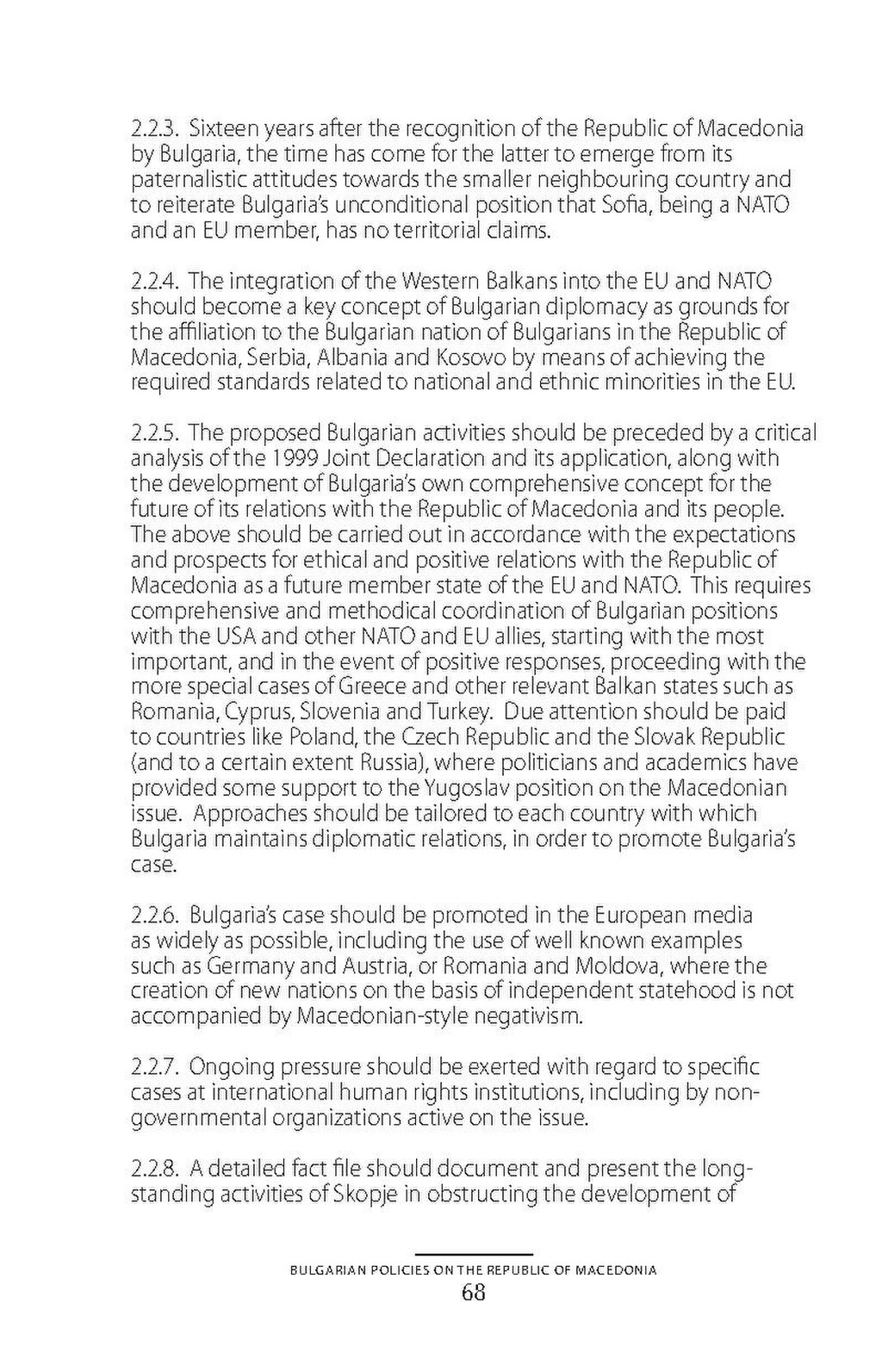2.2.3. Sixteen years after the recognition of the Republic of Macedonia by Bulgaria, the time has come for the latter to emerge from its paternalistic attitudes towards the smaller neighbouring country and to reiterate Bulgaria’s unconditional position that Sofia, being a NATO and an EU member, has no territorial claims.
2.2.4. The integration of the Western Balkans into the EU and NATO should become a key concept of Bulgarian diplomacy as grounds for the affiliation to the Bulgarian nation of Bulgarians in the Republic of Macedonia, Serbia, Albania and Kosovo by means of achieving the required standards related to national and ethnic minorities in the EU.
2.2.5. The proposed Bulgarian activities should be preceded by a critical analysis of the 1999 Joint Declaration and its application, along with the development of Bulgaria’s own comprehensive concept for the future of its relations with the Republic of Macedonia and its people. The above should be carried out in accordance with the expectations and prospects for ethical and positive relations with the Republic of Macedonia as a future member state of the EU and NATO. This requires comprehensive and methodical coordination of Bulgarian positions with the USA and other NATO and EU allies, starting with the most important, and in the event of positive responses, proceeding with the more special cases of Greece and other relevant Balkan states such as Romania, Cyprus, Slovenia and Turkey. Due attention should be paid to countries like Poland, the Czech Republic and the Slovak Republic (and to a certain extent Russia), where politicians and academics have provided some support to the Yugoslav position on the Macedonian issue. Approaches should be tailored to each country with which Bulgaria maintains diplomatic relations, in order to promote Bulgaria’s case.
2.2.6. Bulgaria’s case should be promoted in the European media as widely as possible, including the use of well known examples such as Germany and Austria, or Romania and Moldova, where the creation of new nations on the basis of independent statehood is not accompanied by Macedonian-style negativism.
2.2.7. Ongoing pressure should be exerted with regard to specific cases at international human rights institutions, including by non- governmental organizations active on the issue.
2.2.8. A detailed fact file should document and present the longstanding activities of Skopje in obstructing the development of
